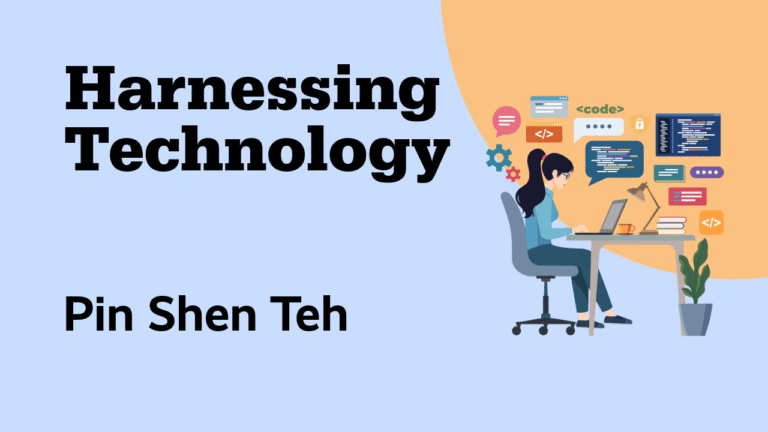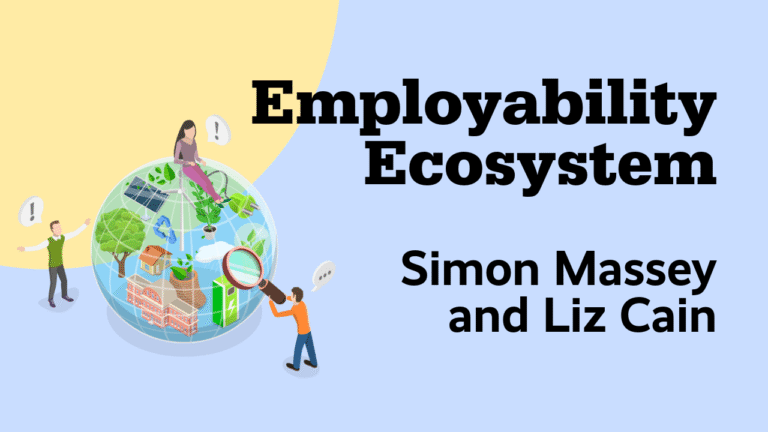‘Belonging in Higher Education’ What might this mean for our diverse student body?
This is a co-authored article by Ffion Evans Faculty Director of Education, Josie Gabi Reader in Education and Caroline Jones Lecturer School of Education based on our 3 LEED presentations at this year’s conference.
As a Post-92 Higher Education Institution (HEI) Manchester Met provides education for a wide range of student demographics. This article aims to provide thought provoking concepts to add to the debate and discussion of ‘belonging’ in higher education. The ideas presented here formulated from the titles and content of three LEED 2025 Conference presentations which are centred on the notion of belonging in higher education.
What is so Fluffy about Belonging? Successes, challenges and reflections on the development of a belonging-minded culture in Higher Education
In the last decade, the concept of ‘belonging’ has emerged as a key paradigm in Higher Education (HE) (Allen, 2021, Crawford et al, 2024). Concern for student belonging is intrinsically interconnected with inclusion and wellbeing, with both compounded by an increasingly pressured and unpredictable global socio-economic context.
For many education practitioners, providing an education experience that enables students to navigate university, feel accepted and be treated kindly and fairly is fuelled by ethical and personal values. This motivation is borne from a collective focus on educational justice and equity (Gabi and Chikwa, 2025) rather than as a means to improve metrics.
None the less, students’ sense of belonging has significance to student behaviours that translate to quantifiable measures, for example student engagement, continuation and completion (Blake et al., 2022). Undoubtedly all these measures rely on students having a tangible and positive, relational, connection with their studies and institution, to fuel a motivation to persist in their studies, and the ability to develop and demonstrate self-efficacy and help seeking, (Jones, 2020, 2023).
However, the systemic, situational, and affective qualities of belonging and inclusion (Ahmed, 2012, hooks, 2009) brings a risk that the tangible behaviours, action and leadership required to support belonging are seen as abstract, secondary or peripheral. In this sense, ‘belonging and mattering’ could be reduced to a simplified buzzword, effectively acting as a heuristic for a set of uninterrogated complex ideas. With the global backlash against EDI and the economic challenges facing HE, relational work and educational justice initiatives are further threatened.
As a result, ‘belonging work’ risks being simultaneously everywhere and nowhere, unless it is translated and rooted into practical and purposeful action. The following abstracts outline how this is possible through attention to building cultures of trust, listening and reflexivity within personal tutoring and theoretical support for student engagement.
Culturally Affirming, Validating and Relationally Just Personal Tutoring and Advising in Higher Education
Culturally affirming, validating and relationally just personal tutoring and advising invite us into a more expansive space, one rooted in radical listening, cultural humility, and relational accountability. This is where, as personal tutors, we hold space for diversity and difference, nurturing trusting relationships that foster a sense of belonging. It entails embracing an infinitude of ways of knowing and being, through a relational orientation that centres care, and co-liberation to cultivate the conditions for students to ‘speak as equals’ (hooks, 2015), where difference and plurality are not framed as problems to be fixed, hierarchised, or annihilated. In this atmosphere, personal tutoring becomes a site of care and radical hope where students do not feel pressured to compartmentalise or relinquish aspects of their identities, and ways of knowing to ‘belong’ and ‘succeed’. This contributes to transforming what counts as knowledge, whose knowledge is valid and valued and, in turn, (re)configure the contours of the academy. To facilitate this, personal tutoring requires:
- Introspection (looking inward): interrogating ontological and epistemic positionality, assumptions and biases that (un)consciously shape practice.
- Outrospection (looking outward): interrogating institutional systems, structures and cultures that shape practice and the student experience.
- Reorientation (intentional shift): decentring hegemonic ways of being and knowing, to allow an openness to different and a plurality of ideas and realities.
The Psychosocial and Academic Trust Alienation Theory – Student Engagement and Sense of Belonging – are we ready for a new approach?
The concept of the Psychosocial and Academic Trust Alienation (PATA) theory aligns to aspects of barriers to student engagement which can subsequently affect belonging in HE. The PATA theory has been researched via systematic literature reviews and empirically, particularly focusing on socio-economic demographics (Jones, 2020; Jones, 2021; Jones 2023). However, the PATA theory can be applied to wider complexities of student demographics and post-pandemic engagement challenges (Jones and Bell, 2024; Jones and Bell 2025; Jones and Sweeney, 2025).
Results from the research into the PATA Theory have led to practical HE leadership and teaching and learning strategies to enhance student engagement and belonging. Key findings highlight that despite the embryonic status of the PATA theory, the HE community would benefit from knowledge of this approach when considering meeting the needs of students. Building student engagement and sense of belonging is dependent on social and relational practice with both tangible and non-tangible aspects being reliant on trust as a foundation (Jones and Sweeney cited in Strudwick and Miller 2025). However, the effects of marketisation and neoliberal systems are driving challenges to building student engagement and belonging and thus trust (Jones and Bell, 2025a).
Conclusion
It has been found that to drive change for students from complex demographics, improve equalities, social mobility, and student success in HE in the post-pandemic context, HEI’s need to continue to research, develop practice and think provocatively about the differing needs of the student market. Sharing our knowledge, research and expertise in this article will hopefully provide a sound foundation with thought provoking concepts to add to the debate and discussion of ‘belonging’ in HE.
REFERENCES:
Ahmed, S. (2012) Ahmed, S. (2012) On being included: racism and diversity in institutional life. Durham: Duke University Press. Available at: https://doi.org/10.1215/9780822395324.
Allen, K., Slaten, C., Hong, S., Lan, M., Craig, H., May, F., & Counted, V. (2021). Belonging: A review of conceptual issues, an integrative framework, and directions for future research. Australian Journal of Psychology, 73(1), 87-102.
Blake, S., Capper, G., & Jackson, A. (2022). Building Belonging in Higher Education. Wonkhe. Available at: https://wonkhe.com/wp-content/wonkhe-uploads/2022/10/Building-Belonging-October-2022.pdf.
Crawford, J., Allen, K. A., Sanders, T., Baumeister, R., Parker, P., Saunders, C., and Tice, D. (2023) Sense of belonging in higher education students: an Australian longitudinal study from 2013 to 2019, Studies in Higher Education, 49(3), pp. 395–409. doi: 10.1080/03075079.2023.2238006.
Clark, D., and R. Talbert. 2023. Grading for Growth: A Guide to Alternative Grading Practices That Promote Authentic Learning and Student Engagement in Higher Education. Routledge.
Gabi, J. & Chikwa, G. (2025). Time to (Re-)think-Feel ‘Quality’ in Higher Education Learning and Teaching. Higher Education Quarterly, 79(3), e70036. doi:10.1111/hequ.70036.
hooks, b. (2009) Belonging: A Culture of Place. New York: Routledge. Available at: https://doi.org/10.4324/9780203888018 [Accessed 11 Jun. 2025].
hooks, b. (2015). Talking Back Thinking Feminist, Thinking Black. London: Routledge.
Jones, C. S. (2021) An investigation into barriers to student engagement in Higher Education: Evidence supporting ‘the psychosocial and academic trust alienation theory’. Advances in Educational Research and Evaluation, 2021, 2(2): 153-165. https://doi.org/10.25082/AERE.2021.02.002
Jones, C. S. (2023). Disadvantage, educational social mobility and barriers to student engagement: An exploration of the Psychosocial and Academic Trust Alienation theory across educational practice. Advances in Developmental and Educational Psychology, 4(1): 160-174.https://doi.org/10.25082/ADEP.2022.01.004
Jones, C. S., and Bell, H. (2024) Under Increasing Pressure in the Wake of Covid-19: A systematic literature review of the factors affecting UK undergraduates with consideration of engagement, belonging, alienation, and resilience. Perspectives: Policy and Practice in Higher Education. 10.1080/13603108.2024.2317316. https://www.tandfonline.com/doi/full/10.1080/13603108.2024.2317316
Jones, C. S., and Bell, H. (2025a). The Intricacies of Student Engagement in Higher Education after the pandemic: Academic and Central Services staff views and experiences. Student Engagement in Higher Education Journal, 6(1), 111–147. Retrieved from https://sehej.raise-network.com/raise/article/view/1370.
Jones, C. S., and Bell, H. (2025a) Post-pandemic pressures in UK higher education: a qualitative study of neoliberal impacts on academic staff and the unavoidable truths. Front. Educ. 10:1627959.doi: 10.3389/feduc.2025.1627959. https://www.frontiersin.org/journals/education/articles/10.3389/feduc.2025.1627959/full.
Jones, C. S., and Nangah, Z. (2020) Higher Education Students: Barriers to Engagement; Psychological Alienation Theory, Trauma and Trust; a Systematic Review. Perspectives: Policy and Practice in Higher Education. DOI 10.1080/13603108.2020.1792572. https://www.tandfonline.com/eprint/X7FHUQNA54GDH7ZS4DTN/full?target=10.1080/13603108.2020.1792572
Jones, C. S., and Sweeney, L. (2025) The Psychosocial and Academic Trust Alienation (PATA) Theory: A new lens to research Higher Education student phenomena: behaviours, characteristics, and demographics. Student Engagement in Higher Education Journal, 6(1), 79–110. Retrieved from https://sehej.raise-network.com/raise/article/view/1240.
Strudwick, K., and Miller, K, A. (2025) ‘Building Student Belonging in HE: Perspectives on Driving and Developing Change’. Jones, C. S., and Sweeney, L. Chapter 5 – Student Engagement and Sense of Belonging – are we ready for a new approach? Due for publication 10 November 2025. Elsevier Publishing.
Kohn, A. (2025) Grading: The Issue Is Not How but Why. https://www.alfiekohn.org/article/grading/


